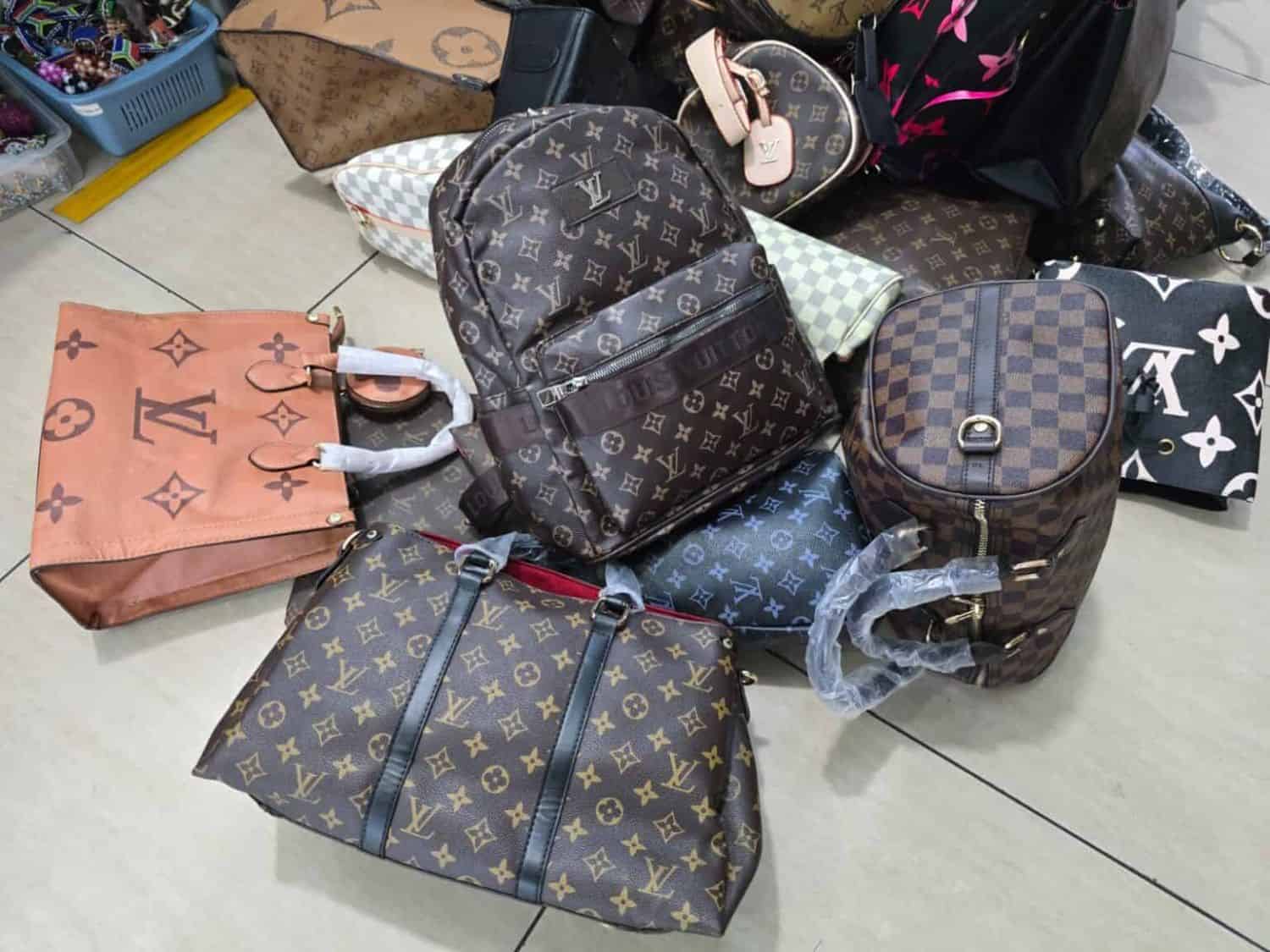'Selling and promoting of counterfeit goods is a crime. The punishment for contravening the act is the same for sellers and promoters.'

There is a saying “fake it till you make it”; however, the South African Police Services (Saps) and the South African Revenue Services (Sars) do not endorse this approach, as it undermines the country’s finances and legal framework.
Law enforcement has strengthened measures to combat illicit trade in South Africa as the black market grows each year. Illicit trade is the illegal production, movement, and sale of goods and services, including smuggling, counterfeiting, and trafficking of illegal products.
We talk a lot about how harmful illicit alcohol and cigarettes are to the country’s economy, but we forget the one that is “acceptable”, fake designer clothes. Keitumetse Sesana, the South African Institute of Taxation’s acting deputy CEO, told The Citizen that selling and promoting fake designer items is as bad as selling illicit alcohol and cigarettes.
We have often seen the Saps seizing counterfeit goods at stores and arresting the owners, and this fate can follow those who operate online.
ALSO READ: Police seize illicit goods worth more than R30m during nationwide operations
Influencers selling fake items
Counterfeits of luxury brands such as Louis Vuitton, Gucci, Burberry, Versace, and Hermès have become easily accessible to society because of social media. There are numerous accounts on social media platforms selling and promoting these items. Some influencers have started promoting these items because of their large followings.
Some have even dubbed themselves “personal runners,” knowing stores where they can obtain fake versions of luxury brands at lower prices. However, selling or promoting counterfeit clothing is a violation of the Counterfeit Goods Act.
“Selling and promoting counterfeit goods is a crime. The punishment for contravening the act is the same for sellers and promoters,” said Sesana. “If found guilty, and you are a first-time offender, you face three years in prison or a fine. If you are a second-time offender, the prison time and fine increase.”
The importance of trademarks
The Counterfeit Goods Act protects brands and consumers by making it illegal to make, sell, or possess fake or imitation goods that infringe trademarks, copyrights, or protected designs. It gives authorities the power to raid, seize, and destroy counterfeit products and allows rights holders to take legal action against offenders.
She highlighted that there is a trend of unboxing bags that look like luxury brands, and that this is how people ask for trouble. “There are influencers on social media who take videos unboxing bags that look the same as some luxury brands; however, this is a crime because those bags are trademarked, so you are actually going against the IP of that person.”
Every single brand in the world has intellectual property rights, which are the legal protections given to brand names, logos, slogans, or symbols that distinguish one business’s goods or services from another’s. Louis Vuitton has LV, Gucci has the double G’s, and Versace has Medusa’s head and chains.
ALSO READ: Fake Louis Vuitton bags and belts seized in R67 million illicit-goods raid
How Sars loses money
Sesana advises people to stop promoting things that are not original because the punishment that comes with contravening the act is not worth it.
When asked if, as a buyer, there are any implications, she said no, because most people think they have bought something original, just at a cheaper price. The only unfortunate thing is that the buyer would have lost money.
These counterfeit goods are sold at much lower prices. For comparison, an authentic Hermès bag starts at around R150 000 and can exceed R500 000. Some vintage and limited-edition items have been sold at auctions for more than R2 million. Then there are some sellers in the country who will sell the bag for R10 000.
“If you sell a bag that costs R150 000 in a store for R10 000, then there is R140 000 lost in revenue that could be contributing to the economy, funding social grants and public programmes,” added Sesana.
MamKhize’s fake bags
Sars recently seized at least 100 luxury brands’ bags owned by controversial businesswoman Shauwn Mkhize, who is popularly known as “MaMkhize”. This was as they attempted to recoup money owed to them by Mkhize; however, they were welcomed with a surprise.
After evaluation, it was determined that only 23 of these bags are original, and they are the only ones eligible for auction. Sesana noted that the businesswoman can face consequences.
Minister of Finance Enoch Godongwana said during the Medium-Term Budget Policy Statement (MTBPS) last week that the money lost to illicit trade could have stopped the tax hikes.
He said government has lost at least R40 billion in excise revenue to the illicit cigarette market since 2020. Similar amounts have also been lost to illicit alcohol and fuel.
NOW READ: Illicit goods worth R1.7 million intercepted at Botswana border post






